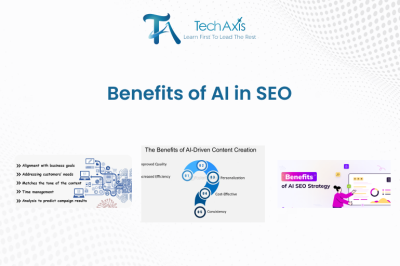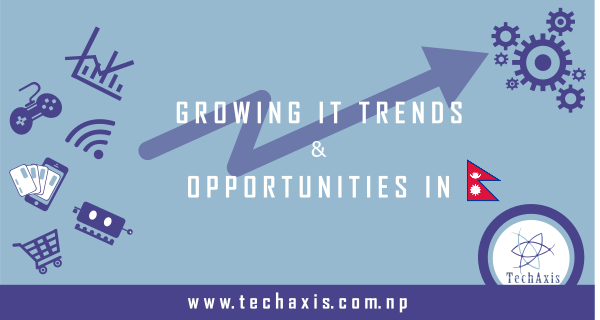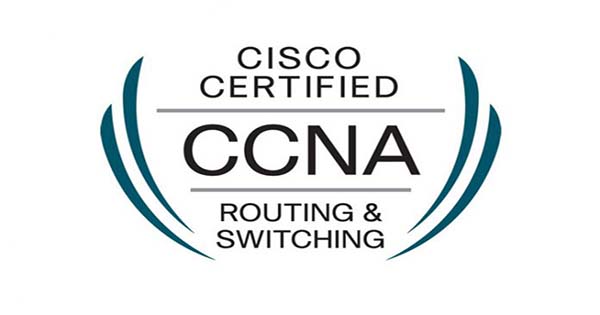
Benefits of AI In SEO
AI is becoming the future trend in industries today, and it is affecting SEO in ways that would be hard to fathom years ago. The combination of SEO and AI is giving new opportunities for companies and digital marketers to improve their approaches and tactics. Over time, the use and benefits of AI in SEO have been advancing and so has the precision it offers in marketing, especially in the forecast of trends, analysis of user behaviour and enhancement of the rankings on search engines.
This evolution sparks questions: Is AI going to replace more traditional forms of SEO? Can SEO be fully automated? As we have mentioned above, AI does not at all eradicate the relevance of SEO specialists but enriches and expands the potential of SEO. It’s making SEO more tactical and is also moving SEO to new heights in Nepal by offering its SEO training course. This new artificial intelligence era enables marketers with better tools and creates tremendous opportunities for SEO in Nepal and others worldwide as well. With the increasing adoption of these technologies by businesses to improve performance, SEO training in Nepal now incorporates the use of AI to equip individuals with what awaits the market.
Understanding the Impact of AI on SEO
The impact of AI in SEO is transforming the way businesses optimize their digital presence, offering immense benefits that enhance efficiency and precision. AI-powered tools streamline keyword research, automate content generation, and provide actionable insights for improving rankings, saving time and resources. By analyzing search intent and user behaviour patterns, AI enhances personalization, helping websites deliver more relevant and engaging content. Furthermore, AI-driven analytics predict trends and monitor competitors, enabling data-backed strategies that outperform traditional SEO practices. Understanding the impact of AI in SEO allows marketers to leverage its benefits, ensuring a competitive edge in the evolving digital landscape.
How AI is Changing the Search Landscape?
- Google's AI-Powered Search Algorithms: Google uses the RankBrain, Vector Search, BERT, etc. algorithms to determine user intent on specific searches to provide quality and accurate content. This evolution has forced SEO techniques to look for better and more meaningful content to improve the ranking.
- The Rise of Voice Search and AI Assistants: In view of the fact that voice search from gadgets such as Siri and Alexa is now a common tool for searching the internet, Cues of Conversation-optimized search engine optimization has been adopted. This transition, the same as the mobile-first approach, focuses on the generation of text that is a natural language.
- AI-Driven Personalization of Search Results: AI delivers the most relevant results depending on the behaviour and preferences of a user, which translates to the need to shift in the search experiences marked by diverse consumer experiences.
Key Benefits of AI in SEO:
- Enhanced Keyword Research: Tools like Ahrefs help in finding new high-impact and long-tail keywords, and minoring in specific queries. Because of this, the website starts receiving improved organic traffic and becomes more compatible with voice searches. It also helps expand what people mean when they search for specific keywords.
- Improved Content Creation: Some of the AI-based tools are creative in providing topic ideas based on the data, writing content for the users as well as providing optimization solutions like ChatGPT. Tools like Surfer SEO analyze top-ranking pages and then help marketers adjust content structure, keywords and comprehensibility to improve their SEO scores.
- Better Content Optimization: On-page SEO is simplified by AI and also technical SEO, and last but not least, link building. The explicitities such as metadata and heading are enhanced by tools like MarketMuse and the technical problems such as those that affect load time and site performance are pointed out by DeepCrawl. Link-building tools also aim at targeting quality sites for increasing domain authority.
- Advanced Analytics and Insights: AI analytics tools forecast keyword likelihoods, monitor users and offer real-time performance indicators. This data helps SEO experts to make changes on a regular basis, make sites more competitive and utilize them in more dynamic environments.
Through such AI developments, SEO has risen to be a more effective, dynamic and informative field that is revolutionizing digital marketing for present-day search.
Practical Applications of AI in SEO
The practical applications of AI in SEO are revolutionizing the optimization process, making it more efficient and data-driven. AI tools like natural language processing (NLP) and machine learning (ML) assist in analyzing search intent, enabling content tailored to user needs. Chatbots and AI-driven algorithms improve user experience by delivering personalized recommendations and faster query resolution. Additionally, AI simplifies technical SEO by automating tasks like site audits, backlink analysis, and performance tracking. Predictive analytics, powered by AI, helps forecast trends and identify new keyword opportunities, ensuring content strategies stay ahead of the curve. From voice search optimization to AI-powered content creation, these applications demonstrate how AI empowers businesses to achieve greater SEO success.
- AI Tools and Platforms for SEO: Jasper.ai to write content; Surfer SEO to assess the success and better optimize page content; SEMrush for extensive research on keywords. Every tool has its edge: Jasper.ai helps to identify appropriate topics and create first drafts, Surfer SEO shows which phrases to use in your page and keyword study, while SEMrush focuses on keyword, traffic and competition data. The decision on which tool to use is largely a function of your requirements. resources, for instance, budget and your desired goal, whether it is on content generation, optimization or analysis. Some factors that can be used in making the decision include; the ease of use, accuracy in the information retrieved and the support available.
- Real-World Examples of AI in SEO: From the earlier examples of AI-driven SEO campaigns, it has been seen how much contribution AI has made. For example, excess consumption of cookies was cut short by companies using predictive analytics to pull relevant content that will interest users, hence better ranking on search engines. It is now crucial to focus on SEO case studies as it is possible to draw important lessons: accuracy and practicality of data-driven changes lie at the core of relevance and visibility in the context of AI.
- The Future of SEO with AI: Amid the advancement in AI, SEO will likely transform in terms of improving its personalization, prediction, and efficiency. The trends that can fuel further development include AI’s functions for natural language understanding and user intent, as well as automating the process.
- Ethical Considerations in AI-powered SEO: Another area of concern is the general application of AI used in SEO since some issues that arise include data privacy, issues of transparency, and issues to do with competing fairly. Getting this right and tuning the effectiveness of SEO with responsible AI use will become paramount as the field evolves.
Addressing Concerns and Misconceptions of Use of AI in SEO
Addressing concerns and misconceptions about AI in SEO is crucial for understanding its true potential and limitations. One common misconception is that AI will completely replace human SEO experts; however, AI is designed to enhance, not replace, human creativity and strategic thinking. While AI can automate repetitive tasks and analyze data efficiently, it still requires human oversight to ensure the output aligns with brand voice and user intent. Another concern is that AI-generated content may lack originality or quality, but with the right tools and input, AI can create valuable content that meets SEO standards. Additionally, some worry about the ethical implications of AI, especially regarding data privacy, but responsible use of AI in SEO involves adhering to privacy regulations and ensuring transparency in data handling. By addressing these concerns, businesses can more effectively integrate AI into their SEO strategies, leveraging its benefits while maintaining control and accountability.
Will AI Replace SEO Professionals?
While many professionals agree that even though AI is rapidly affecting SEO, it will never supplant human skills. While AI is an effective tool when used by SEO professionals, it lacks the creative, strategic, and branding factors that a person adds to it. However, as we have seen, AI enhances human strengths by taking over routine work such as keyword identification, data processing, and online optimization so that an SEO professional can think more tactically. It is crucial to have people’s input for data analysis, making decisions on the further course of SEO, and creating both effective and meaningful content.
The Dark Side of AI in SEO
Unfortunately, AI can be employed for negative SEO strategies, which include developing poor quality exclusively to rank websites or otherwise engaging in decidedly unethical link-building. Some of these unethical practices may lead to penalties from search engines, which have developed sharp senses and the ability to punish anyone who engages in such a practice. Specific principles for future AI SEO have to be ethical and outline the key points that include transparency, high quality of the content and services, and customer orientation. AI implementation for SEO purposes must not take advantage of algorithms, instead, make the use of AI contribute to a positive impact on users, and improve healthy competition in cyberspace.
Why TechAxis's SEO Training Course Will Help Beginners Understand AI Concepts in SEO
TechAxis has a detailed SEO training course available for anyone who wants to get started in the SEO industry as well as understand how AI affects SEO. We ensure that any newly developing SEO and AI information that we have at TechAxis is made available for everyone. It is facilitated by real SEO trainers with years of experience and knowledge about how AI is being implemented in SEO today. These experts do not merely lecture and discuss theory in the classroom — they share practical experiences, true findings and practices relevant to students and people interested in a particular field who have never worked in it but are trying to get a foot in the door.
The course taken at TechAxis focuses more on the practical aspect of the lesson. In our view, the best strategy for learning effective options is an active experiment with artificial intelligence-based SEO. Time and again, participants are exposed to real-life data and get a practical feel of existing AI tools and methods to apply what has been taught. It helps students gain confidence and real-life skills that they will need to succeed in the current world of SEO competition.
You don’t have to worry when it comes to understanding what AI is. TechAxis is appreciated by the readers for providing all the terminology involved in AI in simple language and easy-to-understand English. This makes our course simple and interesting as it assumes that some of the participants can hardly understand the content that’s being presented to them.
We pride ourselves on our SEO and AI beginner’s course where students get a strong understanding of the two topics. Because the benefit of AI in SEO is relatively new, TechAxis has adopted new trends and developments pertinent to the course for student engagement. Upon completion of the course, students will, therefore, have the knowledge to actually apply artificial intelligence in SEO confident enough.
To the new entrants, it is beneficial to engage with an educational service that will help to understand the necessities of their line of business and at the same time gain essential knowledge about the future of SEO.
Conclusion
Artificial intelligence is now affecting SEO in today’s highly dynamic digital environment, and in turn, making it more intelligent, capable and fast. At TechAxis, everything is created with such a beginning in mind, and you will find detailed instructions, classes and workshops taught by AI SEO experts, fresh experience as well as simplified definitions for novices in the sphere. The course prepares a learner towards attaining mastery of the conventional and newly discovered skills that will enable him/her to apply AI to conduct keyword research, generate and optimize content, as well as analyze the performance of a website in a rather competitive market. It is high time to incorporate an artificial intelligence component into one’s SEO strategy and increase the efficiency of using innovative instruments that are revolutionizing the sphere of search engine optimization.











